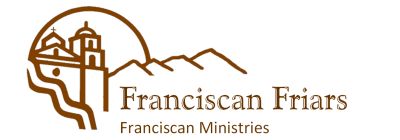A neighbor of mine recently told me that the people living in the canyon below my home are all mentally ill, carry guns, and want to be homeless. When I asked her how many homeless people she knows, she admitted that she doesn’t know any. I do, and her description doesn’t accurately describe a single one.
I don’t judge my neighbor harshly because I know that I too have all kinds of assumptions and stereotypes about people I don’t know. Franciscans focus on the uniqueness of each individual and avoid lumping people into groups based on a single characteristic. But how do we get to know individuals who are very different than us?
In Copenhagen in 2000, Ronni Abergel and his brother Dani tackled this problem by creating the first Human Library where people who have experienced prejudice volunteer to be open books. Books are available for half an hour. The ‘book’ and reader sit face to face and the reader is encouraged to ask questions, including awkward ones.
The books change based on which volunteers are available, but some common titles are:
- Wheelchair user
- Gave my child up for adoption
- Transgender
- Immigrant
- Police person
- Muslim
- Polyamorous
- Sober alcoholic
- Schizophrenic
- Former Gang member
There are currently Human Libraries in 80 countries including the US. Many take place in regular libraries, public gardens, and at conferences but the funding comes largely from corporations who are focused on diversity and host events where their employees can have the experience of meeting people they wouldn’t normally encounter or who they are uncomfortable with.
I am inspired by this way of getting to know people and can image that if St Francis had been born in the 2000’s he might very well be found in a human library taking to a book titled, Leper.
If you are interested in finding out more, here is a link to the organization https://humanlibrary.org

